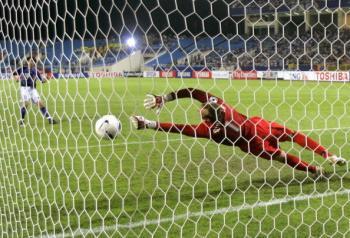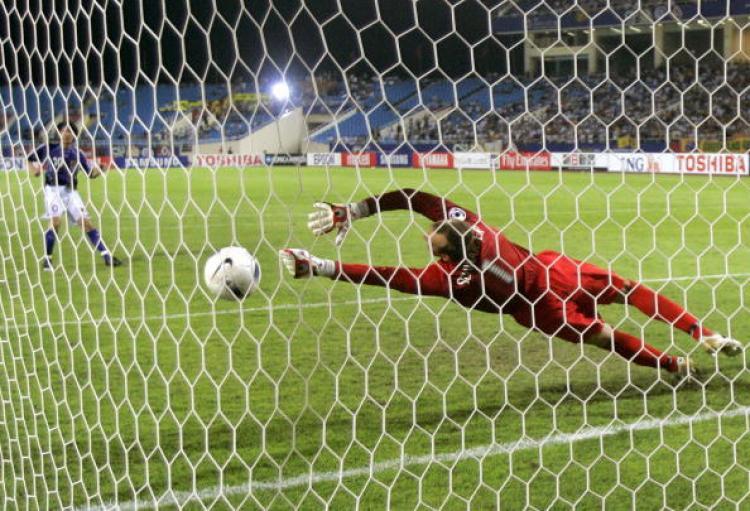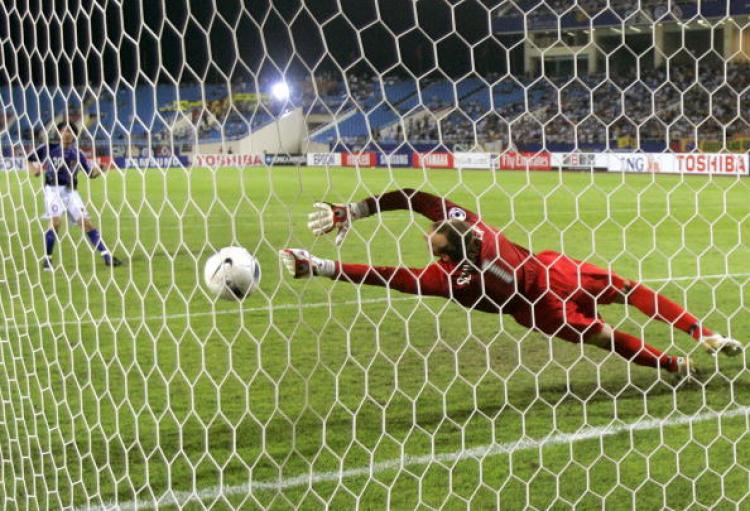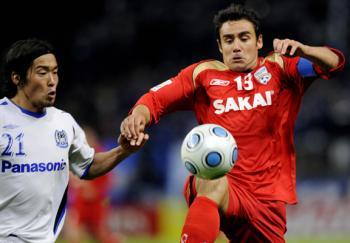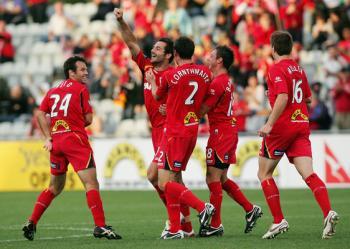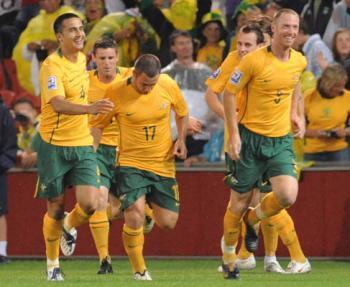Australia playing Japan in a vital 2010 World Cup qualifier in Yokohama on February 11 shapes as a sporting event to savour.
The Japanese Football Association recognised this earlier this year when it allocated the fixture to Yokohama International Stadium – the nation’s largest capacity stadium and venue for the 2002 World Cup Final.
Rivalry Deepens
Australia could not have dreamed of a better rivalry than that which has developed with Japan ever since the Socceroos’ dramatic 3–1 victory at the 2006 World Cup followed in return by Japan’s 5–4 penalty shootout triumph at the 2007 Asian Cup.
On the playing front: being the the two highest ranked sides in Asia and the only undefeated sides in their World Cup qualification Group A heightens the sense of anticipation in both nations ahead of the clash.
Japan’s 3–0 over Qatar last week in Doha was far more convincing than Australia’s lacklustre but nonetheless crucial last gasp 1–0 win over Bahrain in nearby Manama.
Now second in the group (seven points from three games), Japanese coach Takeshi Okada stated post-game last week that his side was looking to “shut up” the first-placed Australians (nine points from three games) by claiming all three points at home in Yokohama and the Group A lead.
Socceroo coach Pim Verbeek in return insisted his players must lift to face Japan.
On the domestic playing front: their J-League is about a decade and half older than our A-League, so Australia has a lot to gain in drawing lessons from the professional evolution of their local competition into the best league in Asia.
On the financial front: a once war-time adversary is today our largest export market.
On the television front: Japan shares a time zone in line with Western Australia – a not insignificant bonus for Socceroo fans used to watching international fixtures in the middle of the night from Europe and elsewhere. On that note: the February 11 match with Japan will kick-off shortly after 9pm AEDT on a Wednesday evening – the broadcast will still be restricted to pay television, but it is sure to attract plenty of viewers to pubs and clubs.
The Australian Federal Government recently placed future World Cup qualifying matches for the Socceroos on the anti-siphoning list ensuring free to air coverage, but this will not come into effect until 2013 when the current pay television contract expires.
Meanwhile, last week also witnessed a public outcry from Socceroo fans when Football Federation Australia-allocated tickets to the Yokohama match were sold out in minutes. The FFA lobbied its Japanese counterparts to increase the Australian fan allocation of seats at the 72,327 seat stadium, with more tickets now confirmed to go on sale in Australia on December 3.
A-League
Results Round 12
Melbourne Victory FC 2 v Central Coast Mariners FC 1
Adelaide United FC 2 v Sydney FC 0
Queensland Roar FC 4 v Perth Glory FC 1
Wellington Phoenix FC 2 v Newcastle Jets FC 0
Ladder Round 12/21
Team GD Points
- Melbourne 10 23
- Adelaide 2 20
- Queensland 5 18
- Central Coast 6 17
- Sydney 4 16
- Wellington -4 15
- Newcastle -9 11
- Perth -14 11
GD=Goal Difference
Round 12
Friday November 28
Wellington vs Melbourne
Westpac Stadium, Wellington 7.30pm
Sydney vs Queensland
Sydney Football Stadium 8pm
Saturday November 29
Perth vs Central Coast
Members Equity Stadium, Perth 6pm
Sunday November 30
Newcastle vs Adelaide
EnergyAustralia Stadium, Newcastle 5pm
